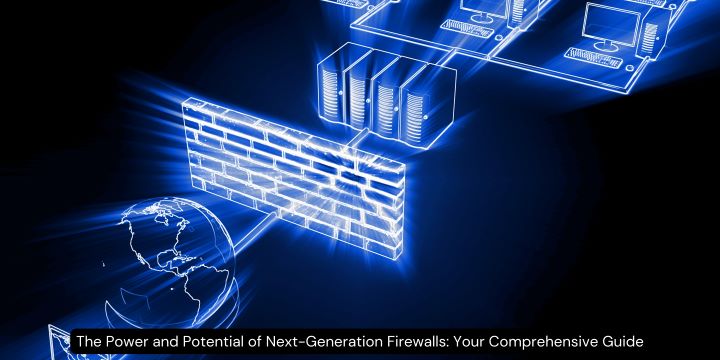Key Takeaways:
- Managed Detection and Response (MDR) services are essential for effective cybersecurity in today’s digital landscape.
- MDR provides continuous monitoring, threat detection, and rapid response to cyber incidents.
- Integrating MDR can save businesses time and resources while significantly enhancing their security posture.
Table of Contents:
- Introduction to Managed Detection and Response (MDR)
- The Growing Need for MDR in Cybersecurity
- Key Features of MDR Services
- Benefits of Integrating MDR into Business Operations
- Conclusion
Introduction to Managed Detection and Response (MDR)
In today’s fast-paced digital world, cybersecurity has become a top priority for businesses of all sizes. Amid an ever-evolving threat landscape, organizations can no longer rely solely on traditional security measures. One of the most effective ways to safeguard your organization against cyber threats is by leveraging managed detection and response (MDR) services. These solutions offer continuous monitoring, rapid threat detection, and immediate response capabilities that traditional security measures often lack, setting a new standard for protecting digital assets.
However, only some understand what MDR entails and why it’s crucial. This article aims to shed light on this invaluable service, offering comprehensive insights into its features, benefits, and real-world applications. It explains why it should be a cornerstone of your cybersecurity strategy.
The Growing Need for MDR in Cybersecurity
With the increasing sophistication of cyber-attacks and the growing complexity of digital infrastructures, the need for robust cybersecurity measures has never been higher. Cybercriminals are constantly developing new techniques to exploit vulnerabilities, making it essential for businesses to stay one step ahead. Traditional security tools, such as firewalls and antivirus software, are often insufficient to counter modern cyber threats, which is where MDR steps in. By offering proactive threat management and continuous monitoring, MDR services fill the gaps left by conventional security solutions, providing a comprehensive approach to cybersecurity.
Moreover, according to a report, the number of cyber incidents reported in 2022 increased by 26% compared to the previous year. This alarming trend underscores the urgent need for advanced cybersecurity measures like MDR. Businesses can’t afford to take a reactive stance regarding cybersecurity; proactive solutions like MDR are essential for staying ahead of the curve.
Key Features of MDR Services
Continuous Monitoring
One of the standout features of MDR services is continuous monitoring. This involves the round-the-clock surveillance of your network, ensuring any suspicious activity is detected in real-time. Constant monitoring is crucial because cyber threats can sometimes occur, and delayed detection can lead to severe consequences. Real-time alerts and automated responses can help mitigate threats before they escalate, making continuous monitoring an invaluable asset for any organization.
Threat Detection and Analysis
MDR services use advanced analytics and machine learning to identify potential threats. These technologies can search large volumes of data to identify irregularities and indications of suspicious behavior. For instance, machine learning algorithms can find patterns in data flow that could signal a cyber attack, enabling faster reaction times. This characteristic is crucial to staying ahead of cybercriminals, who are becoming more sophisticated and constantly creating new ways to evade traditional security measures.
Rapid Response and Mitigation
MDR services offer immediate response capabilities in a cyber incident. This involves separating impacted systems, reducing risks, and guaranteeing that your business can proceed with limited interruptions. Quick response is essential in reducing the effectiveness of cyber attacks by limiting the time attackers have to cause damage. By rapidly addressing incidents, MDR services help preserve your data’s integrity and confidentiality.
Incident Reporting
An often-overlooked feature of MDR services is detailed incident reporting. This provides a comprehensive analysis of the incident, including how it occurred, what steps were taken to mitigate it, and how future incidents can be prevented. Having accurate documentation is crucial for complying with regulations and enhancing security measures. Detailed reports can also serve as valuable learning tools, helping your organization refine its cybersecurity strategy and better prepare for future threats.
Benefits of Integrating MDR into Business Operations
Proactive Threat Management
One of the most significant benefits of MDR services is proactive threat management. Unlike traditional security measures that react to threats, MDR aims to identify and neutralize threats before they can cause harm. This proactive approach significantly enhances your organization’s security posture, providing a more robust defense against cyber threats. MDR services assist in averting security incidents by identifying and addressing potential vulnerabilities beforehand.
Cost-Effectiveness
Although upfront costs may be associated with implementing MDR services, the advantages in the long run are much greater than the expenses. Proactive threat management can prevent costly data breaches and business disruptions, making MDR a cost-effective solution in the long run. Investing in MDR services can save your organization significant money by avoiding the financial fallout associated with cyber attacks, such as legal fees, regulatory fines, and reputation damage.
Enhanced Compliance
Many industries have stringent regulatory requirements concerning data security. Integrating MDR services can help your organization meet these requirements more efficiently by ensuring continuous monitoring and detailed incident reporting, thus enhancing regulatory compliance. For instance, MDR services can assist in meeting regulations that mandate rigorous data protection and incident response measures.
Reduced Downtime
Cyber incidents often lead to significant downtime, which can harm business operations. MDR’s rapid response capabilities minimize downtime, allowing your organization to maintain productivity despite cyber threats. By quickly identifying and mitigating threats, MDR services help to ensure that your business operations can continue uninterrupted, reducing the potential impact on your bottom line.
Conclusion
Managed Detection and Response services are crucial elements of contemporary cybersecurity plans. By offering continuous monitoring, rapid response, and comprehensive threat management, MDR services help businesses protect themselves against an ever-growing array of cyber threats. As cyber-attacks become more sophisticated, integrating Integrating MDR into your cybersecurity framework is not simply recommended—it is important for protecting your digital assets and maintaining business operations.



